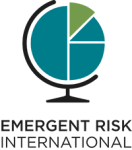OUR DATA PORTAL Create an Account Login
Food and Energy Prices: The Gathering Storm

Global: Food prices hit their highest ever point in March, driven by the war in Ukraine, sky high fuel costs, labor shortages and climatic trends contributing to drought and poor harvests.
Why it Matters
It’s protest season in the northern hemisphere and with most countries lifting COVID-19 social distancing measures, unrest will tick up, potentially toppling governments and affecting election outcomes.
- Pakistan ousted former Prime Minister Imran Khan after months of protest and a no confidence vote in parliament, linked to his handling of the pandemic and Pakistan’s economy. Sri Lanka has been experiencing unrest for weeks with citizens pushing to oust the President and Prime Minister over the country’s dire economic crisis which has limited food, fuel and electricity availability. More countries, like Peru and Argentina, are experiencing frequent strikes and protests over rising costs that are leading to road and port blockades and often violence.
- In the US, high fuel and food costs will be a major election issue that looks like helping to propel Republicans to a mid-term victories in the Senate and the US House of Representatives, creating regulatory and legislative backlash and inertia at least through the 2024 Presidential election.

As commodity prices rise, so does commodity theft, especially by organized crime.
Companies in the food supply chain, whether agriculture, food manufacturing, transport, wholesale or retail will experience higher volumes of food theft as prices rise. While some of this may be economically motivated by impoverished individuals, the most damaging is organized crime rings stealing food supplies in volume and resell for profit.
- In September 2021 US grocery chain Kroger noted that food prices had risen 2-3% since the beginning of the pandemic, in part due to organized crime targeting food supplies.
- In the Netherlands last week 3,500 pounds of cheese, worth over $23,000, was stolen from a farm in Noord Brabant.
- In India last week farmers reported a theft of 750 kilograms of lemons from local orchards, prompting local farmers to deploy security guards to the area.
- Retail outlets globally report more brazen daylight theft of large quantities of products from food to laundry detergent. The products are usually then resold in online marketplaces for profit.
Companies, which are vital to global food supply, will be blamed for high prices prompting regulatory, security and reputation concerns.
Especially in countries where unrest is sustained, those seeking political power, as well as those attempting to maintain it will shift blame to companies – alleging corporate greed. Despite the reality of multiple factors driving food inflation, including shortages, labor, high fuel and fertilizer costs, the Ukraine war, weather conditions and theft – criticism of food and agriculture companies, will heighten threats of protest, vandalism, online boycotts or government price controls as prices continue to rise.
- In March, Argentinian officials warned large businesses would face sanctions over price hikes. The government threatened to apply the 1974 Supply Law, which empowers the government to probe companies, seize products and suspend operating licenses over non-compliance with mandates to freeze prices for 90-day periods.
- In an April US Senate Budget Committee hearing, Senator Bernie Sanders proposed a 95% windfall tax for companies making more than $500 million per year in revenue.
- In 2019, thousands of grocery stores were vandalized, looted and burned down by protesters angry over rising costs of living in Chile.

Indicators and Warnings
Economies struggling to regain economic momentum amid inflation may increase taxes on companies or seize in demand goods. During past economic crises, countries like Egypt and Venezuela have seized commodities that companies store in bulk, like sugar, to be sold at a reduced prices to the public. Other countries may add windfall taxes to shore up cash reserves or score political points with the electorate.
Sustained drops in oil and fertilizer prices could precede lower food prices. The factors driving increased food prices must abate for food prices to drop. High energy, fertilizer and shipping costs, which all factor into increased food prices, are expected to continue for at least the next few months, driven by the war in Ukraine, sanctions and shortages.
Sign up for our Newsletter
ERI has offices in the United States, Singapore, the United Kingdom and Ireland. Want to know more? Contact us
